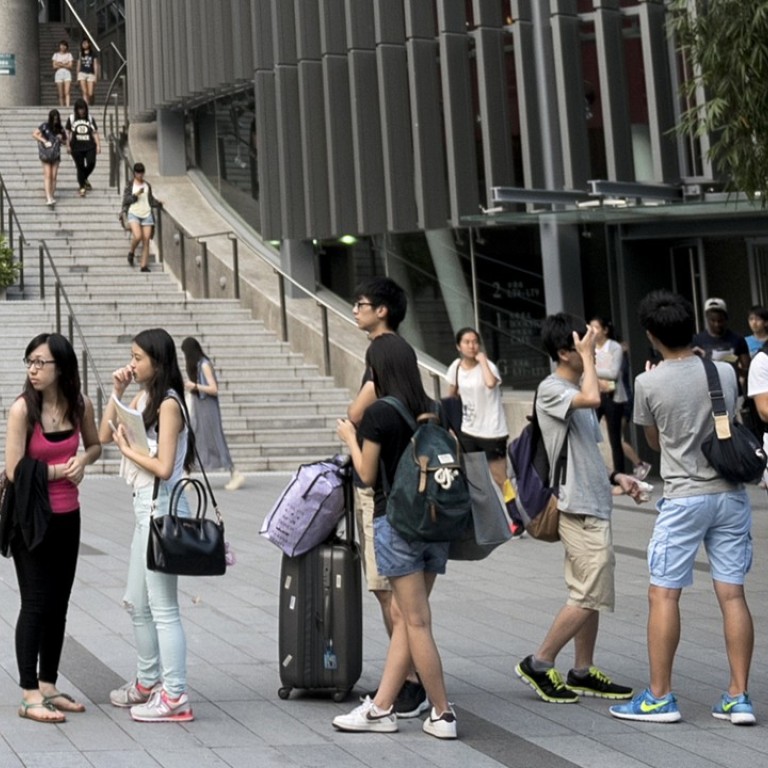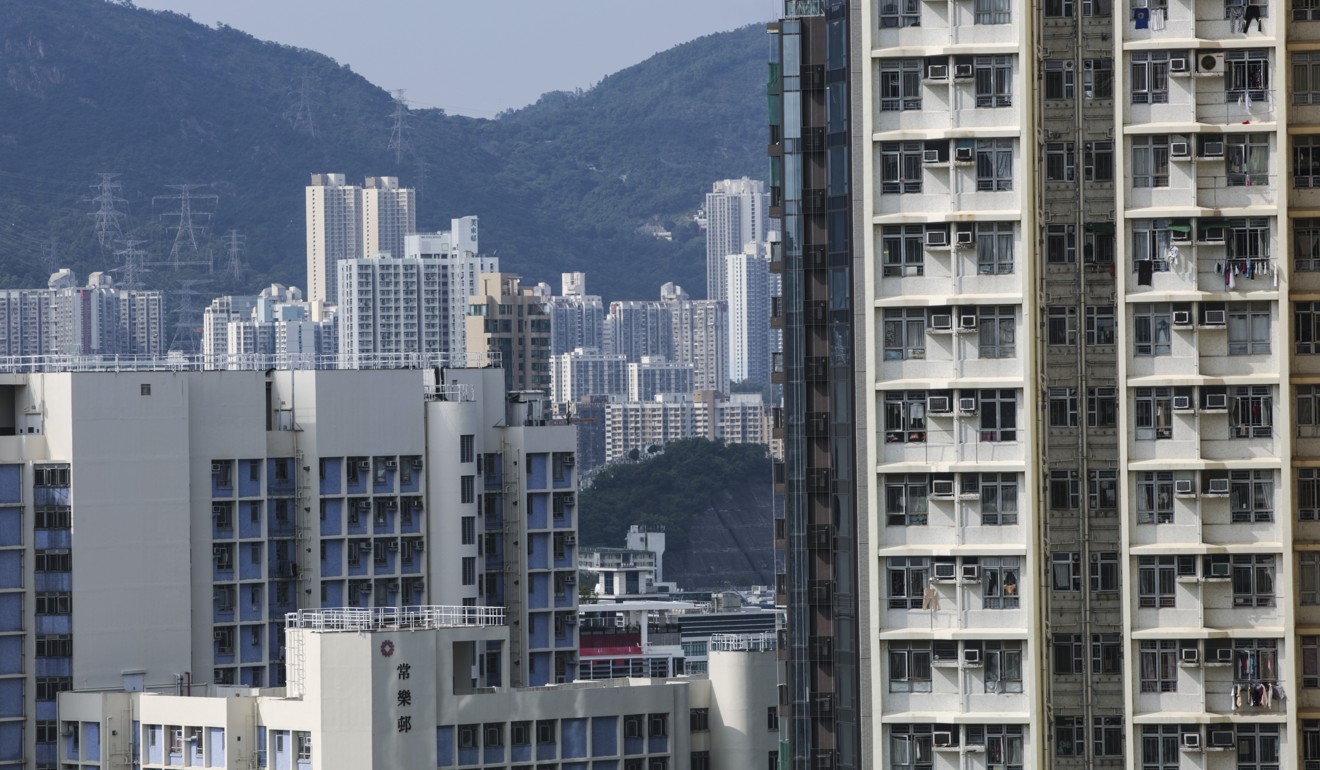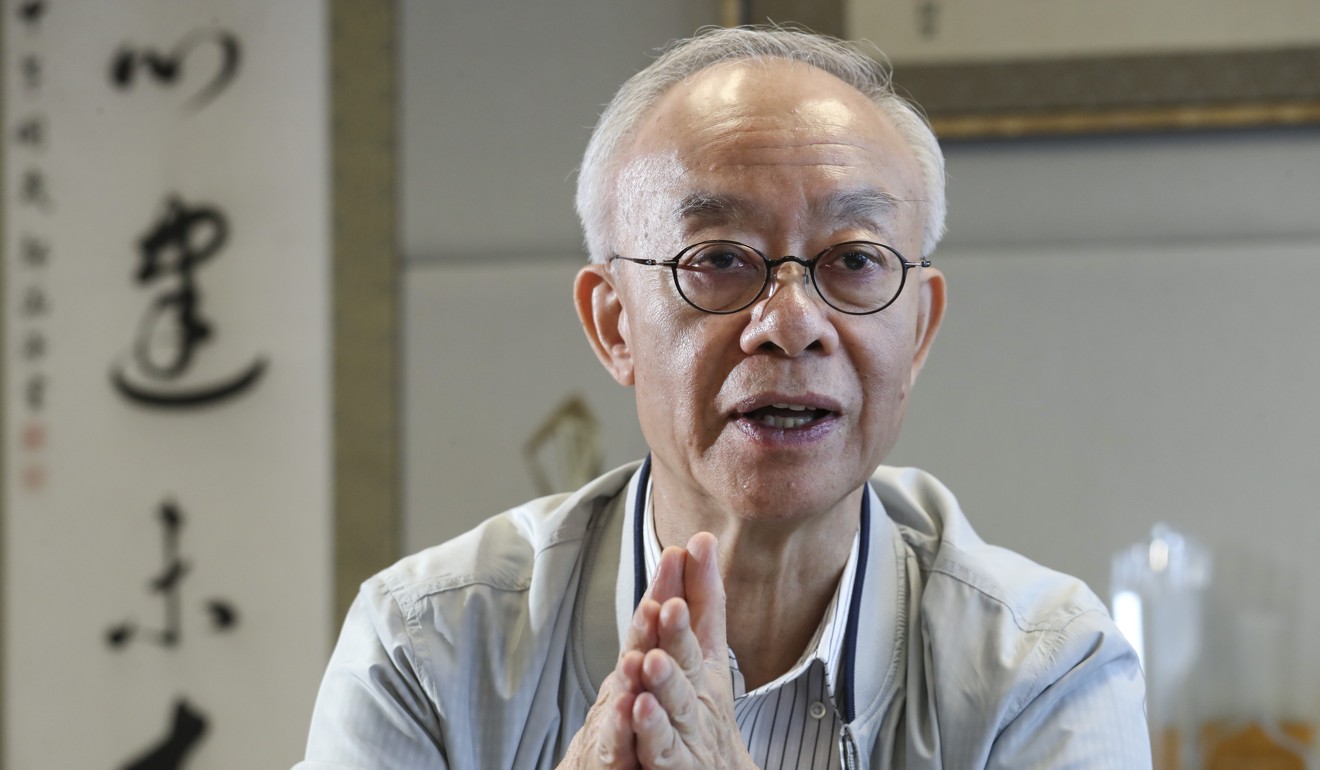
Subsidised flats in Hong Kong may be made available for students
Some 55,000 university students were vying for 35,672 hostel spaces in 2014-15
University students could be eligible to rent thousands of subsidised flats at below market rates, according to the city’s second largest public housing provider.
The proposal is for the owners of a third to half of 16,000 flats with unpaid land premiums to lease rooms in their homes to Hongkongers in the queue for public housing, to tide them over until they are allocated a flat.
On Tuesday, however, Wu suggested students could be added to the list of eligible tenants.
Tenants would have to share the property with their landlords for a contracted period or until allocated a public housing flat.
About 16,000 Hong Kong flats with cheap rent could be made available by 2018 under Housing Society scheme
“It could be a temporary solution to allow university students to rent a room if the subsidised flats are near campus … due to the shortage of university hostel spaces,” Wu said on a radio programme in response to a caller who floated the idea.

Wu would not say whether the idea was feasible, only that he would have to discuss with the government whether students could be considered eligible and placed in a separate category from those in the public housing queue.
According to a Legislative Council paper, some 55,000 local and international university students were vying for 35,672 hostel spaces provided by the city’s eight public universities in the 2014-15 academic year.
Students are given low priority in public housing applications due to their age and potential for upward mobility.
‘Anything but a bargain’: prospective buyers criticise Hong Kong’s latest subsidised housing project
Wu said the pilot scheme could make good use of scarce resources and at the same time solve a housing need.
“In some cases, families who bought a subsidised flat years ago have become more well-off, leaving just the elderly parents living in flats with two or three rooms. This is a waste of resources. But if they have an opportunity to lease out a room or two to those in need, it would be a win-win solution for everyone,” Wu said.

Flats built by the Housing Society are usually bought at a 30 per cent discount on market prices. To prevent market speculation by investors, they are not allowed to be resold or leased out in the private market unless the owner pays a land premium. The payable land premium is linked with market inflation and has been set at around 30 per cent of a property’s market price in recent years.
Many residents have complained that the premiums are too expensive as property prices have reached historic highs.
Flexible elderly-friendly designs must be future for Hong Kong’s public sector flats, Housing Society chief says
The pilot scheme is one of the short-term initiatives announced in Chief Executive Carrie Lam Cheng Yuet-ngor’s first policy address to increase the supply of transitional housing, so as to alleviate the hardship faced by families who are “inadequately housed” on the public housing waiting list.
According to Housing Authority figures at the end of June, there were more than 277,000 applicants in the queue for public housing. Families face an average wait of four years and eight months, while single elderly applicants have to wait two years and seven months.
Wu said he hoped to give landlords and tenants who participate in the scheme more flexibility in determining the rent and would allow real estate agents to be the middlemen.
Asked if he was worried that such freedom would result in rental rates being the same as in the private market, Wu said they would keep a close watch once the scheme was rolled out in the second half of 2018.
“Logically speaking, we assume that by narrowing the eligibility criteria down to only grass-roots families on the waiting list means that the possible rental level would also be subjected to limitations this way. Under normal circumstances, the rent should not exceed market levels, but of course we will closely monitor the situation when it is implemented,” Wu said.
However, Anthony Chiu Kwok-wai, executive director of the Federation of Public Housing Estates, which represents residents, said he believed priority should be given to those on the waiting list for more than three years rather than students.
“Since the number of flats that will be available will not be that many, I believe the Housing Society should prioritise those on the waiting list. University students on the other hand don’t seem to have that urgent of a housing need compared to them,” Chiu said.
City University has faced the most serious shortage of hostel places for local students out of Hong Kong’s eight publicly funded universities. Out of 3,859 applications received in the 2014-15 academic year, only 42 per cent were allocated a space.
The university’s student union president Alvis Chan Ngok-lam said students living in Housing Society flats would lose out on the culture of living in dormitories with others of a similar age.
“A lot of students are not just concerned about having a bed space, they also want to have a fulfilling ‘hall life’ experience, where they can live and grow together with people of their own age,” Chan said.
The University of Hong Kong’s student union president Ed Wong Ching-tak agreed with Chan that students may not find such housing arrangements most suitable for their needs.
“Maybe the flats would be attractive to non-local students who have not been allocated a space in campus hostels, but I believe there are not many of them,” Wong said.
He said local students could live at home but the majority would still prefer to live with other students as part of their “university life experience”.
“I’d rather that the government find land to build more university hostels exclusively for students to live together,” he said.
In her policy address this month, the chief executive unveiled a HK$12 billion hostel development fund to subsidise 75 per cent of the construction costs for new university hostels.
Six universities are currently planning to build 10 hostels in total, providing 9,380 places.
The Housing Society scheme is intended to be an experiment for the government to see if it could be implemented on a much larger scale with flats built by the Housing Authority.
Official figures show that around 380,000 flats sold under the Home Ownership Scheme have unpaid land premiums.

